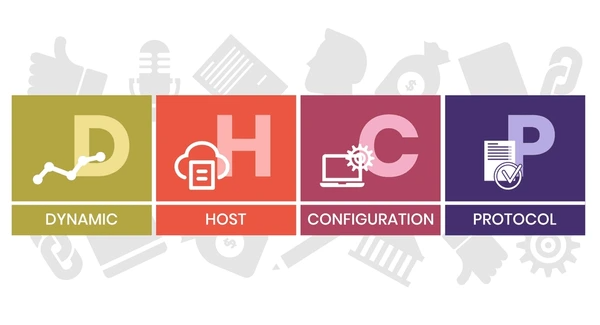
Introduction to DHCP and Static IP Addresses
Setting up a reliable network requires choosing between DHCP and static IP configurations. Both methods assign IP addresses to devices, but they differ in how they operate and suit different needs. DHCP offers automation and flexibility, while static IP provides stability and control. This article will break down the key differences, benefits, and use cases of DHCP vs. static IP, helping you decide which option works best for your network setup. Whether you’re managing a home network or an enterprise system, understanding these two approaches can simplify your decision-making process.
What Is DHCP (Dynamic Host Configuration Protocol)?
DHCP simplifies network setup by automatically configuring IP addresses and other parameters for devices. It eliminates manual configuration, making it ideal for dynamic or mobile networks.
- Dynamic IP Address Assignment
DHCP assigns IP addresses from a pool to devices for a limited lease period. This approach allows efficient reuse of available addresses. - Centralized Management
Network administrators manage and distribute IP addresses from a central DHCP server. This setup reduces maintenance time and simplifies administration. - Automatic Configuration
Beyond IP addresses, DHCP provides other essential settings like subnet masks, default gateways, and DNS server addresses. These features ensure devices are fully operational without manual intervention.

What Is a Static IP Address?
Static IP addresses are manually configured and remain permanently assigned to specific devices. While less flexible than DHCP, they offer distinct benefits in certain scenarios.
- Consistent Addressing
Devices with static IPs retain the same address across all network sessions. This consistency simplifies device identification and improves access control. - Enhanced Security and Reliability
Static IPs reduce the risk of address conflicts, ensuring a stable and secure connection for critical devices. This reliability makes them ideal for essential systems. - Support for Specific Requirements
Some applications or services depend on static IPs for proper functionality or stricter access control. These setups often benefit from the fixed nature of static addresses.

Key Differences Between DHCP and Static IP
IP Address Assignment
Static IP addresses are manually configured and remain fixed for each device. In contrast, DHCP dynamically assigns addresses from a pool when devices connect to the network. This automated process simplifies configuration and efficiently manages IP resources, especially in large networks with many devices.
Network Management
With static IPs, administrators manually track assignments to avoid conflicts, increasing management complexity. DHCP servers automate the allocation process, reducing administrative tasks and minimizing the risk of address conflicts.
Mobility and Scalability
DHCP excels in environments with mobile devices or frequently changing network setups. It automatically assigns IPs as devices join the network. Static IPs are better suited for devices like servers, which require a fixed address for services like web hosting or remote access.
Security Considerations
Static IPs offer better security and accountability since each device always has the same identifiable address. DHCP can reuse addresses across devices, making it harder to monitor and track specific activity.
Network Monitoring and Troubleshooting
Static IPs simplify monitoring and troubleshooting by providing consistent and easily identifiable addresses for devices. DHCP’s dynamic nature can complicate these tasks, making it harder to associate network activity with specific devices.
Choosing the Right Option for Your Network
1. Dynamic vs. Fixed Environments
- Choose DHCP for networks with mobile devices, such as laptops and smartphones, where connections change frequently.
- Opt for Static IPs when reliability is critical for devices like servers or printers.
2. Ease of Network Management
- DHCP simplifies administration by automating IP assignments and reducing manual tracking.
- Static IPs require careful monitoring to avoid address conflicts, which can increase management complexity.
3. Security and Accountability
- Static IPs improve security by providing consistent addresses for easier tracking and monitoring.
- DHCP can be secure with additional settings, such as IP reservations or MAC address filtering.
4. Future Growth and Scalability
- DHCP offers flexibility for expanding or frequently changing networks, making it ideal for dynamic setups.
- Static IPs are more suitable for stable networks with fixed devices and minimal changes.
5. Troubleshooting and Monitoring
- Static IPs simplify troubleshooting by assigning fixed addresses to devices, making them easier to identify.
- DHCP can complicate monitoring due to its dynamic nature but reduces errors during initial setup.
To get detailed scientific explanations of DHCP vs. Static IP, try Patsnap Eureka.

